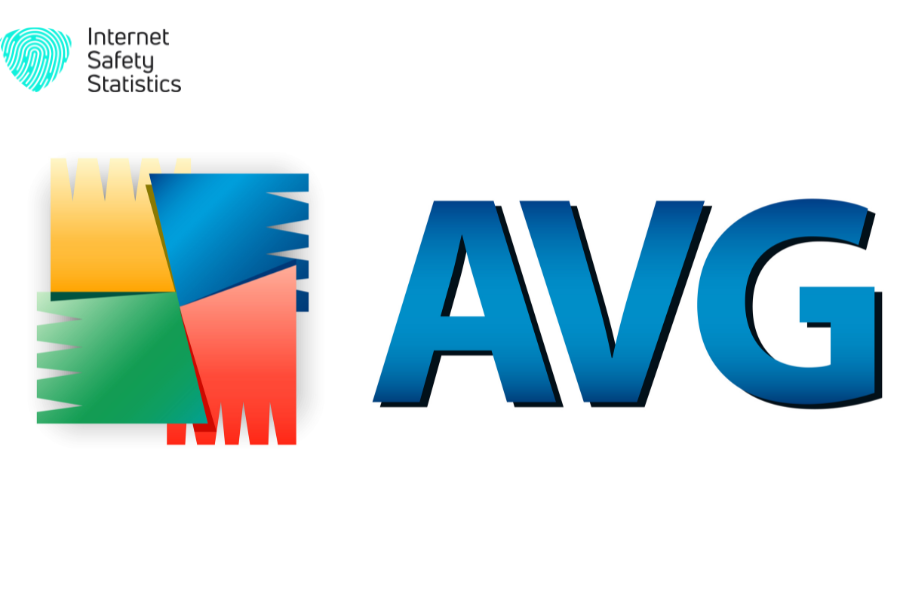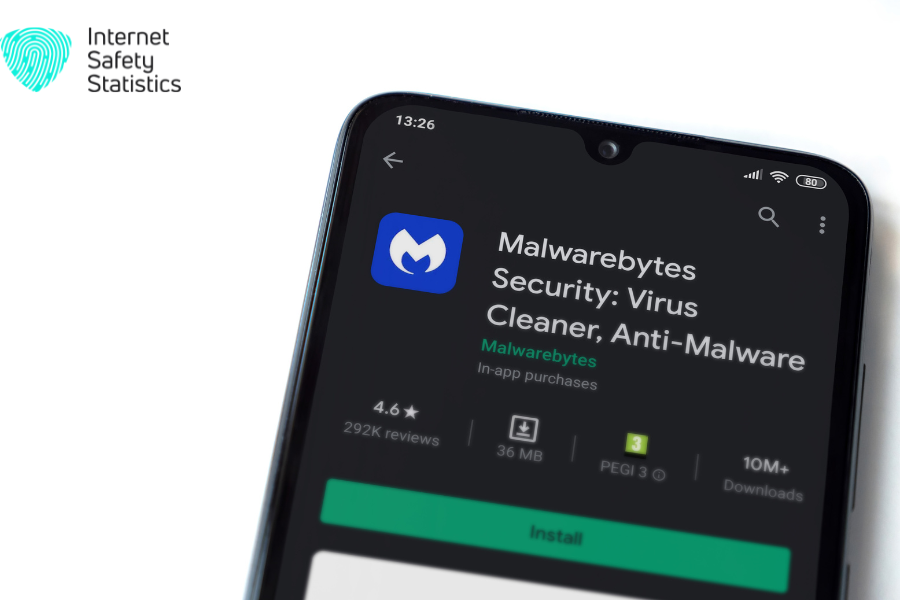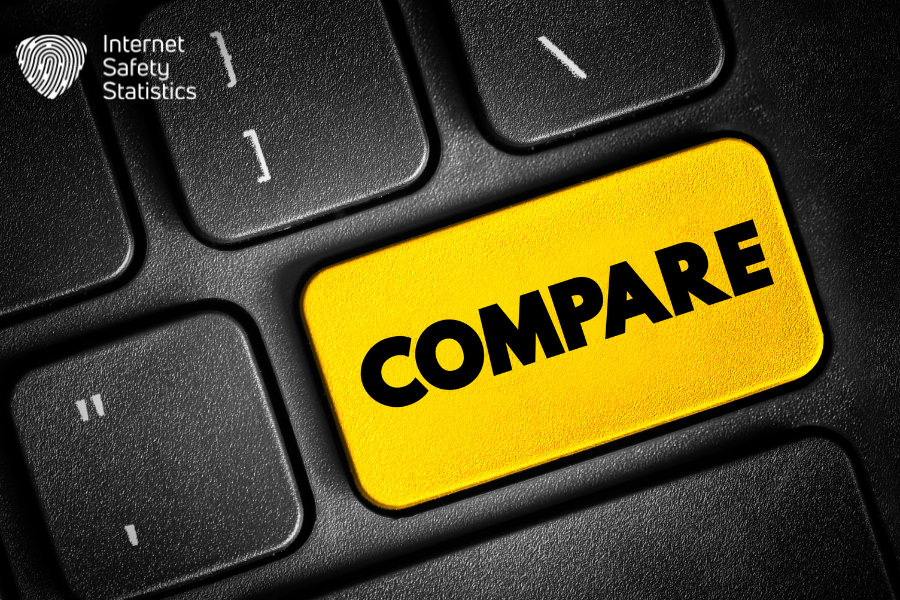
AVG vs. Malwarebytes: Navigating the crowded landscape of antivirus software can be overwhelming. In today’s digital world, where threats like viruses, malware, and ransomware are constantly evolving, choosing the right antivirus is vital for protecting your personal information, financial data, and device performance. This article aims to guide individuals on selecting the most suitable antivirus solution for their needs, by comparing features, user experience, and other key factors in the battle between AVG and Malwarebytes. Ultimately, this will help you choose the optimal shield for your digital life.
AVG: Reliable Protection with a User-Friendly Approach

AVG, a subsidiary of Avast, offers a well-known and reliable antivirus solution for individuals and businesses. It boasts comprehensive protection against various online threats, including viruses, malware, ransomware, phishing attacks, and more. AVG emphasises user-friendliness and accessibility while maintaining robust security capabilities.
Malware Detection and Removal
- Utilises advanced technologies to detect and remove a wide range of malicious software like viruses, worms, Trojans, ransomware, and zero-day threats.
- Offers real-time scanning to continuously monitor your system and block malicious activity before it can infect your device.
- Provides on-demand and scheduled scans to ensure comprehensive protection.
Real-time Protection and Advanced Threat Scanning
- Employs real-time protection to proactively monitor system activity, identifying and blocking suspicious behavior before it becomes a threat.
- Utilises advanced threat scanning techniques like machine learning and behavioral analysis to detect evolving threats and even new and unknown malware.
- Continuously updates its virus definitions and threat intelligence database to stay ahead of evolving threats.
Firewall and Network Security Features (Premium versions)
- Premium versions include a built-in firewall that monitors incoming and outgoing network traffic, blocking unauthorised access attempts and potential threats.
- These versions might also offer additional features like web filtering to block malicious websites, application control to restrict applications from accessing sensitive information, and network attack detection to identify and prevent network-based threats.
Identity Theft Protection and Secure Browsing (Premium versions)
- Premium versions offer features like identity theft protection, which monitors data breaches and alerts you if your personal information is compromised.
- Secure browsing features help block phishing attempts, malicious websites, and online tracking to protect your privacy and data while browsing the internet.
Resource Efficiency and System Impact
- AVG generally falls somewhere between Malwarebytes and Kaspersky in terms of resource usage.
- It aims to strike a balance between comprehensive protection and minimising impact on system performance.
- While generally well-suited for most modern systems, users with older devices might want to consider its resource usage compared to other options like Malwarebytes.
User Interface and Customisation Options
- AVG boasts a user-friendly and intuitive interface, making it accessible to users of all technical backgrounds.
- It offers clear menus and well-organised options for easy navigation and management of security features.
- While not as extensively customisable as some options, it provides basic configuration options allowing users to tailor certain settings to their preferences.
Overall, AVG delivers reliable and user-friendly protection for individuals and businesses seeking a comprehensive security solution. Its balance between user-friendliness and robust features, coupled with its performance optimisation efforts, make it a compelling option for users seeking an accessible and well-rounded security solution.
Malwarebytes: Powerful Protection Without Weighing You Down

Malwarebytes has carved a niche as a powerful and user-friendly antivirus solution known for its efficiency and focus on specific threats. They go beyond traditional antivirus functionalities to offer comprehensive protection against modern malware, making them a popular choice for individuals and businesses seeking a strong layer of security.
Malware Detection and Removal
- Utilises advanced techniques to detect and remove a wide range of malicious software like viruses, worms, Trojans, and ransomware.
- Offers real-time scanning to continuously monitor your system and block threats before they can harm your device.
- Provides on-demand and scheduled scans to ensure comprehensive protection and allow manual scans at your convenience.
Real-time Protection and Advanced Threat Scanning
- Employs real-time protection to proactively monitor system activity and identify suspicious behavior.
- Utilises advanced threat scanning techniques like machine learning and behavioral analysis to detect even sophisticated and evolving threats that might bypass traditional signature-based detection.
- Continuously updates its databases to stay ahead of emerging threats and ensure effective protection.
Behavioral Analysis and Anomaly Detection
- Analyses system behavior and identifies anomalies that might indicate malicious activity, even if the specific threat is unknown.
- This proactive approach helps detect and prevent new and evolving threats that haven’t yet been identified by traditional antivirus solutions.
Browser Extension for Online Protection (Free and Premium versions)
- Offers a browser extension available in both free and premium versions.
- The extension helps block malicious websites, phishing attempts, and harmful online content.
- Additionally, it helps prevent online tracking, protecting your privacy while browsing the internet.
Resource Usage and Impact on System Speed
- Malwarebytes is generally considered resource-efficient, meaning it uses fewer system resources compared to some traditional antivirus software.
- This makes it a suitable option for older devices or systems with limited resources where performance is a concern.
- Even on modern devices, the impact on system speed is generally minimal, allowing you to maintain good performance while staying protected.
User Interface and Ease of Use
- Malwarebytes boasts a user-friendly and intuitive interface with clear menus and easy navigation.
- The interface is designed to be accessible to users of all technical backgrounds.
- Simple scan options like quick scan, full scan, and custom scan allow users to choose the appropriate level of scanning depending on their needs.
- Advanced features are available for experienced users who want to customise the software’s behavior, but the basic functionality is straightforward and easy to manage.
In conclusion, Malwarebytes offers a powerful and user-friendly antivirus solution with a focus on efficiency and resource usage. Its capabilities, combined with its user-friendly interface, make it a compelling option for individuals and businesses seeking comprehensive protection without compromising system performance, especially on older devices or systems with limited resources.
AVG vs. Malwarebytes

This section dives deeper into specific aspects, comparing the two antivirus options:
Evaluation of Malware Detection Rates
- Both Malwarebytes and AVG consistently achieve high scores in independent testing conducted by organisations like AV-TEST and AV-Comparatives.
- It’s difficult to definitively state which performs “better” as both consistently block a vast majority of threats.
- Specific testing methodologies and tested threats might influence results, making direct comparison challenging.
Comparative Analysis of Removal Capabilities
- Both offer effective removal capabilities for detected threats.
- Malwarebytes might have a slight edge in removing certain specific threats like zero-day attacks, due to its focus on behavioral analysis and advanced detection techniques.
- However, the difference might be negligible in practical scenarios, and both solutions are generally effective at removing a wide range of malware.
Assessment of Firewall and Network Security Features
- Malwarebytes: Offers basic web security features in its free browser extension to block malicious websites and phishing attempts. However, lacks a dedicated firewall or advanced network security features in the free version. Premium versions offer optional firewall protection.
- AVG: Free version includes limited web filtering functionalities. Premium versions offer a built-in firewall, email protection, web filtering, and ransomware protection, providing a more comprehensive layer of network security.
Comparison of Identity Theft Protection and Optimisation Tools
- Malwarebytes: Does not offer identity theft protection. However, some premium versions include performance optimisation tools to improve system speed and stability.
- AVG: Premium versions offer identity theft protection with data breach monitoring and alerts. However, lacks dedicated optimisation tools in both free and premium versions.
Resource Usage and Impact on System Speed
- Malwarebytes: Generally considered more resource-efficient, meaning it uses fewer system resources and has minimal impact on system performance.
- AVG: Falls between Malwarebytes and Kaspersky in terms of resource usage. While not as lightweight as Malwarebytes, it offers a good balance between protection and performance, especially on modern devices.
User Experience in Terms of Performance
- Both aim to minimise performance impact.
- Users with older devices or less powerful systems might experience a slightly smoother experience with Malwarebytes due to its lower resource usage.
- Modern systems typically handle both options well, and the choice might depend more on individual preferences and desired features over performance impact for many users.
Choosing the Right Option
The best choice depends on your individual needs and preferences. Consider these factors:
- Prioritise user-friendliness and efficiency: Malwarebytes might be a good choice.
- Need network security features: Consider premium versions of either option, with AVG offering them by default in their paid tiers.
- Value identity theft protection: Opt for premium versions of AVG.
- Have budget constraints: Both offer free versions, and Malwarebytes’ free version provides basic protection, while AVG’s free version offers limited web filtering.
Remember, maintaining safe online habits and keeping software updated, regardless of your chosen solution, plays a crucial role in comprehensive online security.
Pricing and Subscription Models
Let’s break down the costs associated with choosing AVG or Malwarebytes for protecting your digital devices:
Cost of AVG Antivirus Solution
AVG offers a variety of pricing options to cater to different needs and budgets:
- AVG AntiVirus Free: This provides basic protection against common malware, including viruses, spyware, and ransomware. It includes real-time protection, email scanning, and limited web filtering functionalities.
- AVG Internet Security: This premium option builds upon the free version with additional features. It includes:
- Built-in firewall for network protection
- Email protection against phishing and spam
- Advanced web protection
- Ransomware protection
- Sensitive data protection by encrypting files
- AVG Ultimate This package offers AVG’s most comprehensive protection and features:
- Everything included in AVG Internet Security
- Identity theft protection
- PC tune-up tools to improve system performance
Malwarebytes Pricing Structure and Subscription Options
Malwarebytes offers free and premium options:
- Malwarebytes Free: This option provides essential protection against malware. It includes real-time scanning and removal of existing threats. However, it lacks dedicated features like firewall, anti-spam, and identity theft protection.
- Malwarebytes Premium: This paid version significantly expands protection and capabilities including:
- Proactive protection against zero-day threats and ransomware
- Web protection to block phishing and malicious websites
- Multiple device coverage
- Some versions include features like a VPN and limited performance optimisation tools
Important Notes on Pricing
- Both AVG and Malwarebytes offer discounts for multiple devices or multi-year subscriptions.
- Pricing for premium versions can vary slightly depending on your location and current promotions.
- It’s always best to check the official websites of both AVG and Malwarebytes for the most up-to-date pricing plans and special offers.
Free vs. Premium
Choosing between free and premium versions depends on your individual needs. If you require advanced protection features like network security, identity theft protection, and optimisation tools, consider the premium subscriptions. However, if you just need basic malware protection, the free versions of either software could provide sufficient coverage for your needs.
User Reviews and Testimonials: AVG vs. Malwarebytes
Let’s dive into how real-world users perceive AVG and Malwarebytes based on their experiences:
Compilation of User Feedback and Experiences
Here’s a breakdown of common themes found among user reviews:
AVG Positives
- Users consistently praise its intuitive interface and easy setup, making it a great choice for less tech-savvy individuals.
- The free version is considered sufficient for basic protection by many users.
- Those who opt for the premium version appreciate the expanded feature set, including the firewall, web protection, and identity theft protection.
AVG Negatives
- Some users experience intrusive pop-ups or notifications promoting upgrades to paid versions.
- Occasionally, there are reports of higher resource usage compared to Malwarebytes, which might cause slight performance slowdowns on older devices.
Malwarebytes Positives
- Users love how lightweight the software is, causing negligible impact on system performance.
- Its effectiveness in catching and removing specific threats, especially ransomware, is highly valued.
- The free version is seen as a great starting point for those seeking a simple but reliable malware scanner.
Malwarebytes Negatives
- The lack of advanced features in the free version is a common point of criticism, requiring an upgrade to the premium version for web protection, firewall capabilities, and the like.
- Some users find the interface slightly more complex compared to AVG’s, though it’s still generally considered user-friendly.
Insights into Real-World Performance and User Satisfaction Levels
- Overall Positive Sentiment: Both AVG and Malwarebytes are generally well-received, with users acknowledging their effectiveness in protecting against various digital threats.
- **AVG: ** Users appreciate the free version and ease of use, but some experience performance trade-offs on older systems, especially if they choose premium tiers with more features.
- Malwarebytes: Users adore its minimal performance impact and ability to combat specific threats. However, limited features in the free version can be a drawback for some, meaning they might need to upgrade for more comprehensive protection.
In essence, the choice hinges on individual preferences: Do you value simplicity and low system impact? Would you prefer a more expansive feature set? By considering these factors along with insights from user reviews, you can make an informed decision about which antivirus solution best aligns with your needs.
Conclusion
Selecting the right antivirus software can be overwhelming, but understanding the strengths and weaknesses of options like AVG and Malwarebytes can help you make an informed choice. Both offer robust protection against various threats, but their approaches differ.
If you prioritise user-friendliness and low resource usage, Malwarebytes might be a good fit. Its simple interface and minimal system impact make it ideal for beginners or users with older devices. However, its free version offers basic protection, and advanced features require a paid subscription. AVG, on the other hand, provides a wider range of features, including a built-in firewall and web protection (premium versions only). This comprehensive approach caters to users seeking a multi-layered security approach, but its premium features come at a cost.
Ultimately, the best choice depends on your individual needs and preferences. Consider your technical expertise, desired features, budget, and device specifications when making your decision. Remember, while choosing a reliable software solution is crucial, maintaining safe online habits and keeping software updated are equally important for comprehensive online security. By combining these elements, you can confidently navigate the digital world and protect your valuable information and devices.
